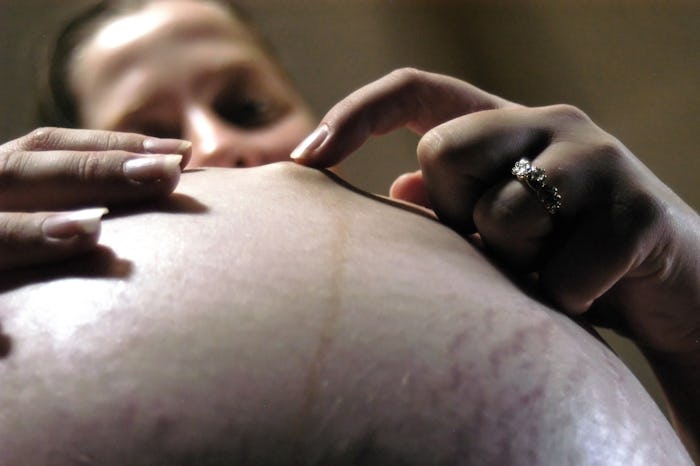Life

Will A Queef During Pregnancy Sex Hurt Your Baby?
There are a number of mind-blowing things that happen to a mom-to-be’s body during pregnancy. From peeing when you sneeze to crying out of nowhere, all of the changes can be overwhelming. Additionally, you might notice bodily functions, like flatulence or queefing, are out of your control. If you’re not used to queefing, you may have some concerns, like “will a queef hurt the baby?”. Since a queef comes from the vagina, it’s totally logical to think about how it affects your baby.
If you’re unsure what a queef is, that’s OK. Some women don’t deal with them often or don’t realize what it is when it occurs. In an interview with Women’s Health, clinic professor Dr. Mary Jane Minkin said a queef is a normal occurrence that happens when a pocket of air is getting forced out of the vagina. It often sounds similar to passing gas. Although that might sound concerning, it’s actually no big deal. Minkin also shared that queefing is of, “zero health consequence." It’s not to be confused, however, with your partner blowing air into your vagina, which can send air into the pelvic veins and potentially create an air embolism. So just remember: as long as air is coming out, and not being forcefully blown into your vagina, you’re in the clear.
You may also wonder how the air causing a queef gets trapped in the vagina. Again, it’s not unsafe, so there’s no reason to worry. According to She Knows, gas can escape from the rectum and slide into the vagina. Although it’s a totally normal occurrence, however, it can still be pretty unpleasant. When you're already overly conscious about postpartum changes, having to worry about a fart escaping your vagina is probably the last thing you want. Luckily, you can take comfort in knowing a queef won’t hurt your baby. And maybe even have a few laughs about that uncontrollable queef that escaped at Target mid-pregnancy.
Although queefing may not have been a normal occurrence for you before pregnancy, they'll likely be around for a while. Queefs may continue to be more common after pregnancy due to a weakened pelvic floor. In order to repair any lack of muscle strength within the pelvic floor, Baby Centre suggest you do pelvic floor exercises to help your perineum and vagina heal.